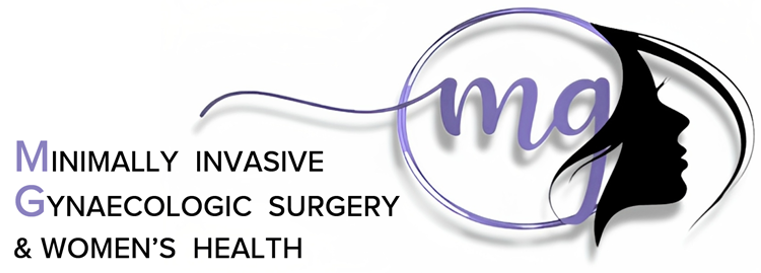Women’s Health Services
Empathetic and passionate about all aspects of your obstetric and gynaecologic needs.
Gynaecology Conditions
Comprehensive gynaecological care.
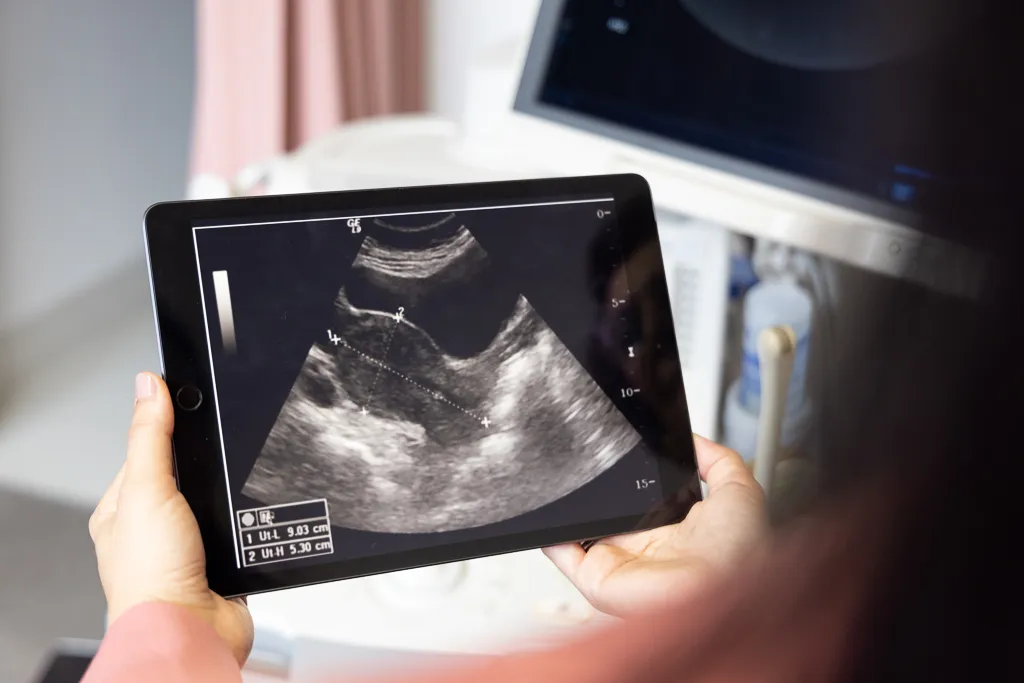
What’s different about me?
My mission is to promote women’s health and to care for women across every stage of their lives.
I promote a respectful, empathetic, compassionate, and informative approach when addressing your gynaecological concerns. My aim is to empower you with the information required to make safe, informed decisions, to achieve the best possible quality of life.
I understand that women’s health issues are deeply personal. I am open and approachable and like to get to know my patients. I want you to feel comfortable to discuss all aspects of your well-being, sexuality and reproductive health. I take the time to listen and to understand how each woman’s unique circumstances affect her as an individual. I educate my patients so that they feel more in control of their situation.
I will allocate a generous initial appointment with you for a comprehensive assessment and examination. This allows me to delve into your symptoms and present you with treatment options that align with your specific situation and goals. To complement our discussions, I will provide you with evidence-based patient information handouts for you to take home, allowing you to further understand your condition and the proposed management options.
I believe in a collaborative approach to optimally manage your gynaecologic health. My role is to offer honest, unbiased professional advice and provide the latest evidence-based information to craft a personalised plan tailored to you.
I allocate personal time outside of regular hours to engage in educational sessions and webinars on a weekly basis. I am a lifelong learner. I continuously invest in my knowledge to ensure that I remain up to date so I can tailor my expertise to you when you see me.
I have had extensive training and the highest qualification in gynaecological surgery (AGES surgical skill Level 6), so you can trust that you will receive the finest treatment under my care. Should surgery be required, I possess proficiency in various surgical techniques. Following a comprehensive assessment, examination, and workup, I will offer you the most suitable surgical option, one that aligns with your wishes and medical status, and I will explain the associated risks based on your personal circumstances.
I encourage you to review this AGES document on how to choose a specialist gynaecologist: Click here
Gynaecologic Conditions
Painful periods are the most commonly reported gynecological complaint amongst women and it occurs in 60% to 90% of women. Endometriosis affects approximately 70% of women with painful periods. Delayed diagnosis and misdiagnosis are a common problem, with some women taking up to seven years to receive a diagnosis. As such, timely review by an endometriosis expert is essential.
There are many types of ovarian cysts and pelvic masses. A thorough clinical history, examination and imaging will guide appropriate management.
Pelvic pain can arise from your bowel, reproductive or urinary tract.
This is menstrual bleeding of abnormal quality, duration or schedule. It includes heavy periods, irregular periods, bleeding with sex, bleeding between periods and bleeding after menopause. The cause may be the uterus, cervix, fallopian tubes, ovaries, vagina or something else.
Uterine fibroids are a benign (non-cancer) tumor in the uterus. About 80% of women will have fibroids in their lifetime. Not all women with a fibroid will have symptoms or even know about their presence. Fibroids can cause bleeding, pelvic pain and/or infertility.
Is a common condition affecting 1 in 10 young girls and women in their reproductive years. Features include ovarian cysts, irregular and infrequent menstrual cycles, excess face and body hair, acne, weight gain, reduced fertility and increased risk of diabetes, amongst other health conditions.
This is also known as recurrent pregnancy loss, a devastating experience for women attempting to have a baby. Recurrent pregnancy loss is defined as two or more pregnancy losses and affects 1% of couples.
Early pregnancy problems may include bleeding, miscarriage and ectopic pregnancy. As such, early pregnancy can be a stressful time for women, especially for those that have waited a long time for the pregnancy or who have experienced previous early pregnancy problems.
The cervical screening test checks the health of your cervix. More specifically, it checks for the human papillomavirus (HPV), a common virus that causes a change in the cells of the cervix. This virus is the most common cause of cervical cancer.
Urinary incontinence is when you involuntarily leak urine. You may leak urine when you cough, laugh, jump or run (known as stress urinary incontinence), or you may leak urine when you have a sudden ‘urge’ but can’t make it to the toilet in time (known as urge urinary incontinence or overactive bladder). Bladder problems may also manifest as symptoms of ‘urgency’ whereby you get a sudden ‘urge’ to pass urine and have to rush, going to the toilet too often in the daytime, getting up at night to go to the toilet, bladder pain, or a feeling that you are not completely emptying your bladder.
Perimenopause is the stage of life leading up to your last menstrual period, which is known as menopause. During this stage, you may experience some of the symptoms of menopause. For most females, menopause occurs between 45 to 55 years of age. Perimenopause can last up to 10 years. Menopause is defined as the end of menstruation and having no period for 12 months.
Refers to different conditions and infections that affect a woman's external genitalia (vulva) and vagina.
A well woman check is a recommended regular health check and screening, along with healthy lifestyle choices, to promote the prevention of illness and optimise overall health and wellbeing. This includes a check of your blood pressure, cholesterol, blood sugar level, heart and cardiovascular health, cervical ccreenin, breast health, sexual health, ovaries and uterus, bladder and bowel, fertility, mental and emotional health and immunisation.
Gynaecology Procedures
Dr Girgis performs a wide range of gynaecological procedures, including complex gynaecological surgery. She is accredited to perform the highest level of advanced laparoscopic surgery (AGES/RANZCOG Level 6), holding certification as an Advanced Laparoscopic Surgeon with the Australasian Gynaecological Endoscopy & Surgery Society. Dr Girgis has expertise in all areas of minimally invasive surgery.
Procedures offered include:
- Laparoscopic (keyhole surgery)
- Advanced Laparoscopic Endometriosis surgery
- Hysterectomy (removal of the uterus) – laparoscopic, vaginal or abdominal
- Myomectomy (removal of fibroids) – laparoscopic, hysteroscopic and abdominal
- Advanced Hysteroscopic Surgery: Removal of polyps and fibroids, Endometrial Ablation
- Adhesions
- Removal of ovarian cysts and masses
- Incontinence surgery – laparoscopic and vaginal
- Vaginal prolapse surgery – laparoscopic and vaginal
- Fertility surgery and tubal patency check
- Tubal ligation
- Laparoscopy for ectopic pregnancy
- Surgery for abnormal cervical screening result / LLETZ
Office procedures include:
- Colposcopy / Vulvoscopy
- Mirena IUD removal and insertion
- Vaginal pessary insertion and management
- Endometrial aspirate
- Lesion biopsies
- Abscess Incision and drainage / Bartholin’s marsupialisation
Your Gynaecology Journey
First consultation, surgery & recovery
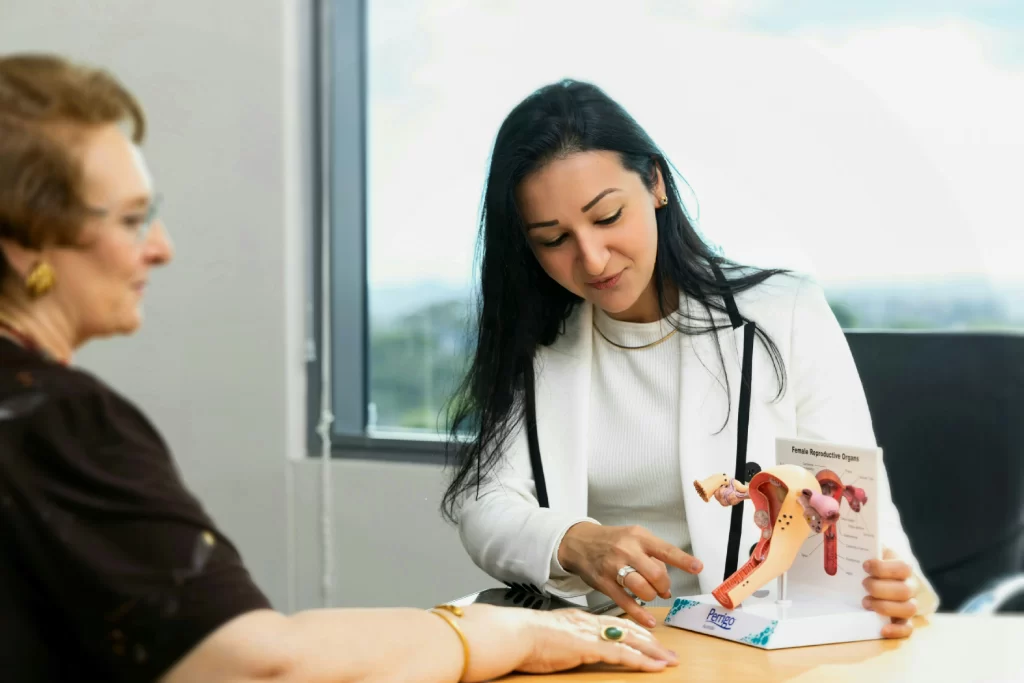
Once referred by your GP for a gynaecological condition, you will have a personal consultation with Dr Girgis. Dr Girgis will perform a comprehensive assessment that includes a symptom history, examination, and a possible procedure in the treatment room.
You will undergo relevant tests and require a follow-up appointment. Dr. Girgis will explain your condition, treatment options (such as physiotherapy, medication, or surgery), and their expected outcomes. If surgery is recommended, she will discuss the procedure, its’ benefits, risks, expected recovery, and whether minimally invasive/laparoscopic surgery is suitable. Afterwards, the ideal surgery timing will be scheduled.
You’ll have time to consider the recommendations. If you opt for surgery, Dr. Girgis will guide you through the consent and paperwork. You’ll receive relevant handouts and information. A quote for Dr Girgis’ surgical fees will be provided; the anaesthetist and hospital charges are billed separately. You are advised to check your health insurance coverage.
You must not consume food for 6 hours before surgery (water is allowed up to 2 hours prior). Upon hospital admission, you’ll enter the perioperative waiting area and receive care from a nurse.
The surgery team will meet you in the anaesthetic bay.

Afterward, you’ll be taken to the theatre room.
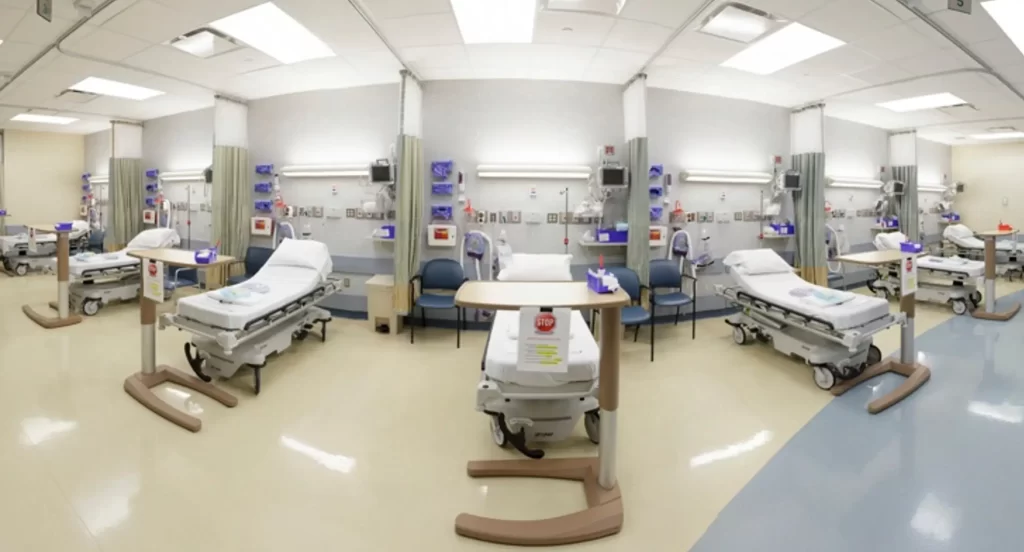
Following surgery, recovery occurs in a dedicated area.
Depending on your procedure, you may be discharged or spend a night in the ward.
Dr. Girgis oversees your hospital stay and provides post-surgery instructions. You will be required to arrange a follow-up appointment with Dr Girgis to assess your recovery, discuss findings, show you surgical photographs (if you are happy to see them) and plan further management.
Minimally Invasive Gynaecologic Surgery
Laparoscopic surgery offered at the top skill level. The same surgery but with smaller incisions, less pain, quicker recovery, and shorter hospital stay.
Laparoscopy, often referred to as keyhole surgery, is a minimally invasive surgical technique that involves the use of specialised instruments and advanced surgical skills to perform surgery through small incisions instead of a larger cut.
A fine video camera called a laparoscope is introduced into the abdomen through a small incision to provide the surgeon a magnified and detailed view of the pelvic organs. Additional small incisions are strategically made to accommodate specialised instruments, allowing the surgeon to delicately navigate and manipulate internal structures and to perform the surgery.
This minimally invasive approach minimises trauma to tissues and offers numerous advantages, including smaller scars, reduced postoperative pain, shorter recovery times, and less complications such as blood loss and infection compared to traditional open surgery.
Performing laparoscopic surgery for complex disease demands a great deal of surgical planning, and exceptional precision, fine motor skills, hand-eye coordination, manual dexterity, and in-depth knowledge of pelvic anatomy. Every movement is meticulously controlled, requiring mental endurance and composure when faced with challenging anatomical variations and diseases. Dr. Girgis has undergone extensive training to excel in laparoscopy, even for complex cases.
While Dr. Girgis strives to offer minimally invasive surgery whenever possible, it’s important to note that not all patients are suitable candidates. She is skilled in various surgical approaches and will work with you to explain the pros and cons of each approach and recommend the most suitable surgery for you.
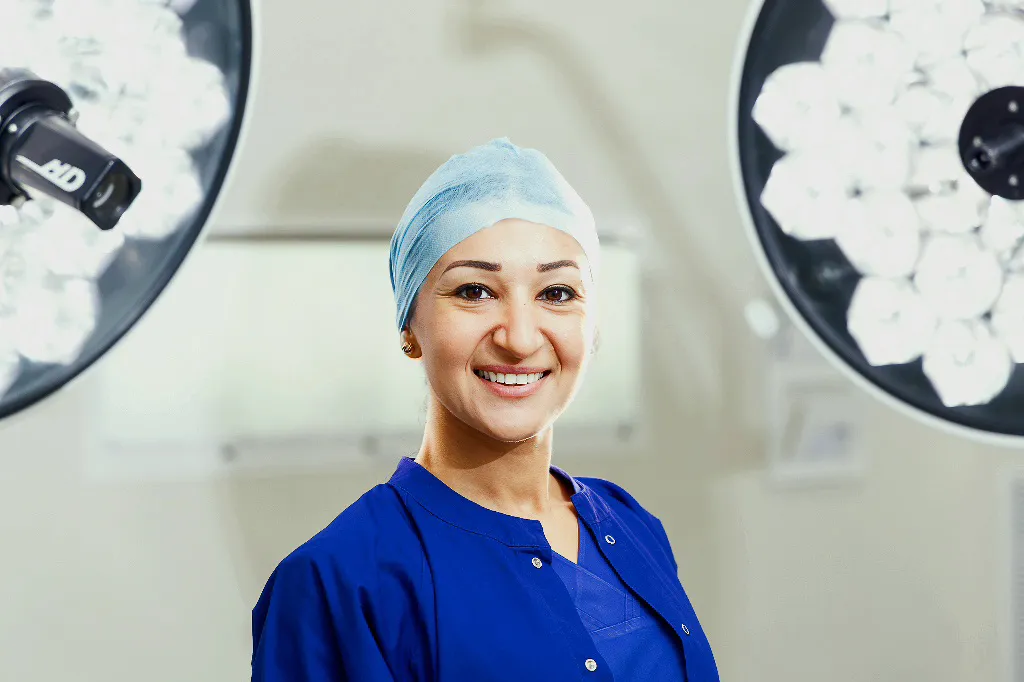
– Dr Myriam Girgis
Obstetrics
I am humbled that you are entrusting me to look after you during the most precious journey of your pregnancy and birth. It is an enormous privilege.’
– Dr Myriam Girgis
What’s different about me?
Whether it is your first baby, a normal or high-risk pregnancy, or you’re expecting multiples, every pregnancy is wonderfully unique, and consultations are tailored to suit your pregnancy. I have experience in managing all aspects of pregnancy and complicated deliveries, and I am highly motivated to give you the best care.
My approach is centred around offering holistic, compassionate, and personalised care to ensure that your experience is both relaxed and safe. I want you to feel comfortable to discuss every aspect of your pregnancy. A common compliment from patients is that I am calm; I want to make you feel at ease, knowing that you are in capable hands.
I am dedicated to maintaining expert knowledge, offering reassurance, and ensuring accessible specialist care, especially for pregnant women and couples with a complex medical history or previous pregnancy complications.
To provide a tailored and personalised approach to your pregnancy, it’s important that you get in touch with me as soon as you know you’re pregnant. This allows us to identify and address any concerns early, answer your questions, and provide the necessary guidance, particularly if you have medical issues, hereditary conditions, or a history of infertility or miscarriages.
During our initial meeting, I will conduct a thorough assessment of your and your partner’s health, medical history, and any previous obstetric outcomes. I will guide you on hospital booking, parent education classes, and arrange imaging, pathology referrals, genetic testing, and carrier screening as needed. Throughout your pregnancy, we will regularly discuss your progress, monitor both your health and your baby’s, and arrange further investigations and referrals when necessary.
I will also provide you with access to reliable pregnancy information from reputable sources, allowing you to take your time to understand and absorb the concepts we discuss and return with any questions you may have.
My role is to assess your needs and provide evidence-based information and expert advice. You will be fully informed about the benefits, risks, and potential outcomes of any choices you make, empowering you to make decisions with confidence and peace of mind. Pregnancy can bring a mix of excitement and nervousness, and I want you to know that I am here to support you every step of the way.
I work as a solo obstetrician, so you will receive continuity of care from me throughout your pregnancy and birth – I am available to you 24/7. I deliberately limit my practice to looking after a small number of pregnant women at a time to ensure I am fully accessible to you. You can expect easy and quick communication with me – I am dedicated to you.
While I advocate for natural birth with minimal medical interventions, I am skilled in all aspects of complicated deliveries, including assisted vaginal delivery and caesarean section, when they are necessary for the safety of both you and your baby. I support your choice for a safe natural birthing experience, and I will also support you if you wish for a planned induction of labour or elective caesarean section on maternal request.
My services include:
- Pre-pregnancy assessment and counselling: This is a counselling session before you become pregnant. Planning for pregnancy and motherhood is such a beautiful and exciting time, but it can also be a busy time. There are many things to consider before having a baby, even if this is not your first pregnancy. We can help with this. This is especially important for women with a history of recurrent miscarriage, previous preterm delivery, birth defects, epilepsy, women aged over 35-years and those with known medical conditions such as hypertension, diabetes, psychiatric illness, kidney disorders and heart problems.
A preconception consultation will involve a thorough history, examination, a set of investigations, and possible referral to other specialist physicians. We will discuss potential issues surrounding your medical condition and a future pregnancy, and how to optimise your health in preparation for pregnancy.
A healthy lifestyle and iodine and folic acid supplementation is emphasised. Also if you have genetic conditions that run in the family or have a child with a genetic disorder, you should book in to see us before you get pregnant. We will discuss your chance of conceiving a baby with the same genetic condition and how to reduce this chance or prevent it. Some genetic conditions we can test for include Down Syndrome, Cystic Fibrosis, Haemophilia, Thalassaemia and Tay-Sachs disease.
- Management of early pregnancy concerns or complications, including miscarriage and ectopic pregnancy
- Management of uncomplicated/normal pregnancy, labour and birth
- Management of high-risk pregnancies, including
- Women with complex pre-existing medical conditions
- Women with pregnancy-induced medical conditions
- Women with a history of adverse obstetric outcomes
- Multiple pregnancy
- Vaginal birth after caesarean section (VBAC)
- Women of advanced maternal age
- Women with an IVF pregnancy
- Caesarean section or induction of labour on maternal request
- ECV (External Cephalic Version) for breech presentation
- Vaginal delivery for twin pregnancy
- Postpartum care
Antenatal Care at MG Women’s Health
– Dr Myriam Girgis
Dr. Girgis recommends scheduling your initial appointment as soon as you confirm your pregnancy to allow for a comprehensive assessment and early management of your care. Ideally, Dr Girgis would like to see you between 7 and 10 weeks gestation, after you have had a dating scan. Your partner or support person is always welcome at antenatal visits.
Throughout your pregnancy, Dr. Girgis will maintain a structured visit schedule, meeting you every 4 weeks until 28 weeks, every 2 weeks until 36 weeks, and weekly until delivery. For example, once you see Dr Girgis at about 8-10 weeks, it will be followed by visits at 14, 20, 24, 28, 30, 32, 34, 36 weeks and then weekly until delivery. This will apply to most patients; however, there are times when you need to be monitored more often and additional appointments are required.
At each visit, Dr Girgis will discuss important points, address any concerns you may have and answer your questions. Should you have any questions along the way, write them for Dr Girgis to answer at your upcoming appointments.
Dr. Girgis limits the number of new patients each month to maintain the highly personal nature of her service to you. While she strives to see you in a timely manner, occasional delays may occur. This may be because she must attend to a delivery during the consulting session or she is held up in theatre in a complex surgical case.
During the initial consultations, Dr Girgis will cover the following points with you:
- Number and timing of antenatal visits, antenatal care, place of birth
- Prenatal testing and genetic counselling: reproductive carrier testing
- Pregnancy supplements
- Smoking and alcohol in pregnancy
- Importance of a dental check-up
- Exercise in pregnancy
- Food safety in pregnancy
- Weight in pregnancy
- Travel in pregnancy
- Vaccinations in pregnancy
- Prevention of Cytomegalovirus infection in pregnancy
- Common complaints in pregnancy
- Mental health in pregnancy and postnatal depression
- Anti-D injections (if relevant to you)
- Possible conditions in pregnancy
- Gestational diabetes
- Hypertension/pre-eclampsia
- Cholestasis
- Bleeding
- Preterm labour.
At 20 weeks onwards, Dr Girgis will cover the following points with you:
- The pattern and importance of foetal movements
- Maternal side sleeping
- The perineum
- Pelvic floor exercises
- Group B Strep screening
- Labour and birth
- Vaginal birth after caesarean (if this is relevant to you)
- Elective caesarean section
- Induction of Labour
- Foetal heart monitoring in labour (CTG)
- Possible complications in labour
- Instrumental-assisted vaginal delivery
- Episiotomy
- Pain relief in labour
- Breech presentation
- Breastfeeding/infant feeding
- Caring for your newborn, prevention of Sudden Infant Death Syndrome (SIDS) and safe sleeping, Newborn screening tests, Vitamin K prophylaxis and Hepatitis B vaccination
- Relevant Referrals (dietician, physiotherapist, lactation consultant etc.)
Dr Girgis delivers at St. George Private Hospital, which (like all private hospitals) has a Level 2 Nursery but not a Neonatal Intensive Care Unit (NICU).
If you go into labour or need delivery at or after 34 weeks of pregnancy, Dr Girgis can deliver your baby at St George Private Hospital, where your baby will be looked after in the Level 2 Nursery., If delivery occurs before 34-weeks, you will need to be transferred to a public hospital with a Level 3 Nursery like Prince of Wales Hospital.
At the public hospital to which you are transferred, you will be under the care of an obstetrician who has an appointment at that hospital. However, please keep Dr Girgis informed and send her photos. Also, Dr Girgis would still love to see you for your six-week postnatal visit.
If there is no time to transfer you and there is a real concern, Dr Girgis will deliver you at St George Private Hospital with the paediatrician present. Your baby will be taken to the Level 2 Nursery. The Newborn Emergency Transport Ambulance Service (NETS) will come, stabilise your baby and take your baby to the public hospital that has a Level 3 Nursery that has agreed to look after your baby.
It is safer to transfer you while pregnant than to transfer your baby after delivery. That is because your baby may need special attention immediately after birth and is safer to have the NICU a short distance from where you deliver.
Your baby will be transferred back to St George Private Hospital as soon as suitable.
A set of routine blood tests are recommended around 7–10 weeks gestation (you may have performed these when you planned to start trying for a baby):
- Full blood count
- VDRL (syphilis test)
- Hepatitis B, Hepatitis C and HIV
- Rubella
- Blood Group
- Antibody status (Rhesus positive or negative)
- Varicella Zoster
- Urine test
- Other tests may also be recommended depending on you and your family history, such as an early diabetes test (Fasting OGTT), thyroid test, Thalassemia screen, Vitamin D level, Ferritin, an STI check (to exclude sexually transmitted infections), and a Cervical Screening Test.
- A NIPT will be offered – this is a blood test for common chromosomal anomalies, including Down Syndrome, that can be performed any time after 10 weeks. However, it is not covered by Medicare or Private Health Fund. It bears an out-of-pocket cost of around $300-500, depending on where you are having it done.
A repeat full blood count, syphilis check, blood group and antibody screen, and diabetes blood tests will be organised at 26 – 28 weeks, and another full blood count again at 36 weeks.
Dr Girgis may perform an ultrasound scan at your visits for you to have a chance to look at your baby. There will be no additional cost for these scans.
You will be sent to an ultrasound specialist for the following scans:
- Dating scan
- Nuchal Translucency Scan (cNT scan)
- Morphology Scan
Dr Girgis may recommend additional growth and well-being scans to check the well-being of the baby. This will be discussed with you during your antenatal appointments.
Several tests are available for genetic testing. These tests are aimed at testing for Down Syndrome as well as other important chromosomal abnormalities. These tests are optional but may be important to you, to prepare you for the pregnancy and allow you to make more informed decisions regarding the care of your pregnancy.
Genetics tests include:
- Genetic carrier screening test
- Prenatal screening tests
- Non-invasive prenatal testing (NIPT)
- First trimester combined screening
- Diagnostic tests
- Chorionic Villous Sampling (CVS)
- Amniocentesis
Dr. Girgis will advise you on the various available tests and options.
Gestational diabetes mellitus (GDM) is a common pregnancy condition. Pregnancy triggers significant changes in your body, including hormonal shifts that can lead to insulin resistance.
To screen for GDM, an oral glucose tolerance test (OGTT) is recommended around 26–28 weeks gestation, or earlier if you have risk factors that particularly predispose you to GDM. This is a fasting blood test. You will need to fast from 9pm the night before the test and the test is usually conducted at 7am. You can drink water.
During the test, your fasting blood glucose level will be checked with an initial blood sample. You will then be given a sweet glucose drink. Additional blood samples will be collected at 1 hour and 2 hours after consuming the drink to monitor your blood glucose levels.
Group B Streptococcus (GBS) is a type of bacteria naturally present in our bodies, commonly found in the intestines or vagina. GBS is not a sexually transmitted disease and does not require treatment. Approximately 20% of women have GBS in their vaginal flora during childbirth.
Testing for GBS is performed via a vaginal swab between 35-37 weeks of pregnancy. In some cases, a urine test during pregnancy may also detect GBS, in which case you are treated as GBS positive.
When GBS is present in the vaginal area during labour, there is a possibility of transmission to the newborn. While most babies exposed to GBS remain healthy, a small number may become seriously ill and require admission to the neonatal uni. This condition is known as early-onset GBS sepsis. Without treatment, approximately 1 in 200 women carrying GBS will give birth to a baby who develops a severe infection.
Your baby can receive protection against GBS disease by receiving antibiotics during labour. These antibiotics cross the placenta to reach the baby before birth, effectively preventing severe infections during the early days of life.
Your postnatal visit will be about 6 weeks following the delivery of your baby. Your partner and your baby are very welcome to attend this appointment. Dr Girgis loves to see how your baby and family is doing in the first few weeks after delivery.
At your postnatal visit, Dr Girgis will check on your overall well-being and discuss the following with you:
- Your bleeding
- Stitches
- Mental well-being
- Bowels and bladder function
- Pelvic floor exercises
- Diet and exercise
- Sleep
- Feeding your infant
- Sex and Contraception
- Recommended inter-pregnancy interval
- Your next pregnancy
- Vaccinations
- Cervical Screening Test
A ‘high-risk’ pregnancy is a pregnancy that involves increased health risks to the mother, the baby or both. Certain health conditions can make a pregnancy high risk. Having a pregnancy that is considered high-risk does not mean you or your fetus will have problems. Many women experience healthy pregnancies, labour and delivery, despite having identifiable risks. However, your pregnancy may require close monitoring and care before, during your pregnancy or after the delivery of your baby to reduce the chance of complications and provide you and your baby with the best and safest possible outcome.
A pregnancy is considered high risk if you, or your baby, are at an increased risk of health problems before, during or after delivery. If your pregnancy is considered high-risk, you may have different pregnancy care needs.
At your first appointment, Dr Girgis will take the time to thoroughly assess your history and situation as follows:
- If you are related to your partner
- Previous pregnancies
- Your gynaecological history
- Your medical and surgical history
- Family medical history and genetic conditions relevant to your pregnancy
- Medications and other drug history
The potential causes of a high-risk pregnancy
A pregnancy may be ‘high risk’ as a result of a medical condition that was present before the pregnancy (pre-existing) or a medical condition that surfaces or develops during the pregnancy for either you or your baby (pregnancy-related), causing the pregnancy to become high-risk. This means you may not begin your pregnancy as high risk, but a condition may develop during pregnancy that causes your pregnancy to become high risk.
Pre-existing risks include:
- Advanced maternal age. Pregnancy risks are higher for mothers of age 35 and above.
- Lifestyle factors including smoking, drinking alcohol, and using recreational drugs.
- Body weight. Low body weight (BMI of less than 18.5) or being overweight (BMI greater than 25).
Maternal conditions such as autoimmune conditions, diabetes, high blood pressure, heart disease, kidney disease, thyroid disease and other endocrine conditions, blood clotting disorders, epilepsy, mental health disorders such as depression, poorly controlled asthma, and history of fibroids, endometriosis, and prior surgery on the uterus.
Pregnancy-related conditions include:
- Birth defects or genetic conditions in the fetus
- Poor growth in the fetus
- Gestational diabetes
- Multiple pregnancy (pregnancy with more than one fetus, such as twins).
- Pre-eclampsia and eclampsia
- Previous high-risk pregnancy. Previous pregnancy problems increase the risk of having the same diagnosis or occurrence during the next pregnancy. This includes previous preterm labour or birth, and pregnancy-related high blood pressure disorders such as pre-eclampsia.
- Certain placental conditions such as placenta praevia, whereby the placenta lies low in the uterus and near the cervix or covering the cervix.
If you are contemplating a pregnancy and you are already aware you will have a high-risk pregnancy or you wish to do your best to prevent a high-risk pregnancy, book in to see Dr Girgis early for preconception care and advise Dr Girgis of your complete medical and pregnancy history.
Management of your high-risk pregnancy will depend on your special circumstances and your condition. Your pregnancy plan will require close monitoring and care throughout your pregnancy by Dr Girgis.
You may require the following:
- More regular appointments and additional tests including more ultrasound scans of the baby
- Consultation with other medical specialists such as a specialist in maternal-fetal medicine, genetics or paediatrics
- High dose folic acid
- Diet and exercise to reach a healthy weight before your pregnancy
- Initiation of pregnancy-safe medication to manage your condition
- A change or adjustment in your pre-existing medication in preparation for your pregnancy
- Discussion of your risk of having a baby with a genetic condition
- An induction of labour or caesarean section if your health or the health of your baby is in danger
Dr Girgis will provide you with a holistic and personalised pregnancy care plan that is tailored to your specific needs and conditions. The aim is to provide you with a smooth pregnancy and the best possible care during your precious pregnancy and birth journey. Despite a high-risk pregnancy, our aim is to deliver a healthy baby to a well mum. You will be guided through what is needed.
Things to look out for:
Seek medical attention if you experience any of the following:
- Feeling your baby is not moving or not as active as usual
- Vaginal bleeding or watery vaginal discharge
- Loss of consciousness
- Severe headaches
- Pain or cramping in the lower abdomen
- Pain or burning with urination
- Changes in vision such as blurry vision or seeing stars
- Sudden or severe swelling of the hands, face or feet
- Fever or chills
- Persistent nausea and vomiting
- Thoughts of harming yourself or your baby
